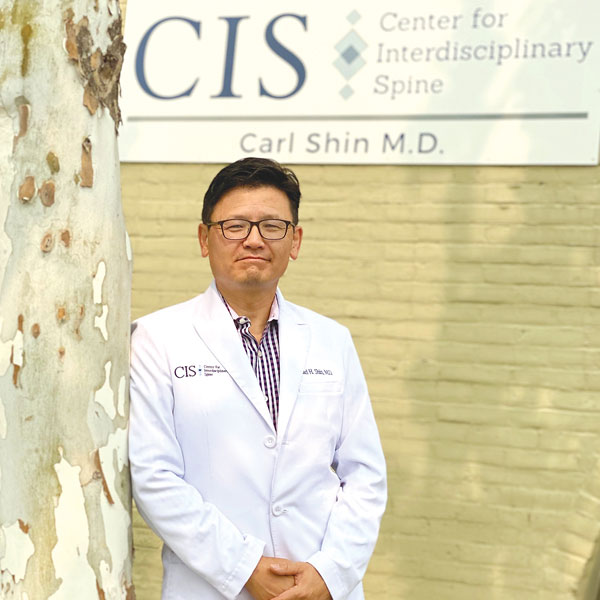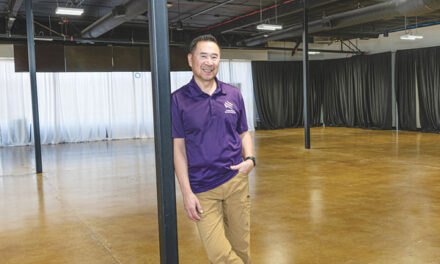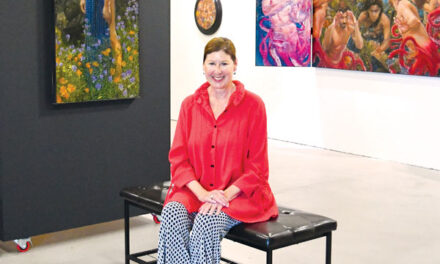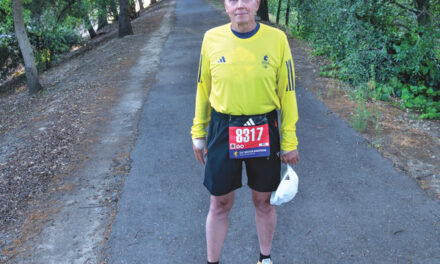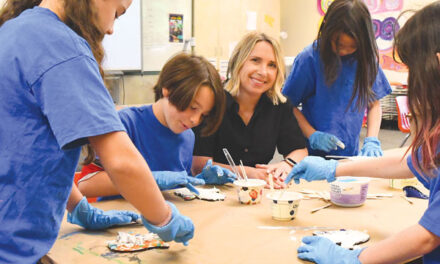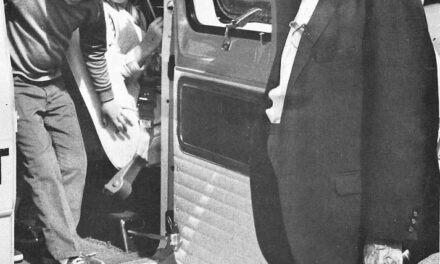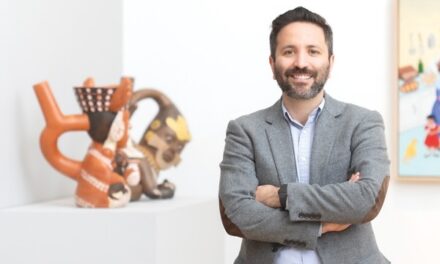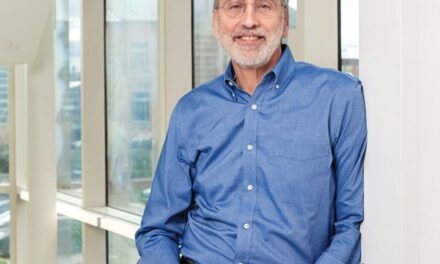A Better Way
Local doctor approaches pain management using body and mind
By Cecily Hastings
October 2020
Dr. Carl Shin has made a career of bucking the traditional medical establishment when it comes to pain management.
“After managing chronic pain for 20 years, I’ve discovered that I’m in a field where we do the same things over and over without really getting results. Since outcome and results don’t seem to drive the pain-management business, I sought a better way,” Shin says.
Dr. Carl Shin reports that the third leading cause of death are medical complications and errors because doctors are doing what he calls “too much.”
“Numerous major studies show that back-fusion surgery and cortisone injections have a very limited value in stopping pain. And everyone understands the danger of long-term use of opioids. Studies show that they actually cause more pain,” he says.
“They change the brain chemistry and that changes the way the nerve endings and pain receptors actually feel in the body. And we have never been able to successfully control chronic pain with anti-inflammatories or antidepressants. But those approaches are sadly the standard medical practices for dealing with pain.”
The U.S. has the highest per-capita health care spending in the world, Shin says. “And what do we get for all the extra spending? Certainly not better health care.”
Dr. Carl Shin is the chief medical officer of the Center for Interdisciplinary Spine, a private practice he established in 2001. He also manages another private practice called Keystone Functional Restoration. He earned his medical degree from Loma Linda University in 1995.
“Since the 1990s, there’s been a lot of research funding that’s gone into understanding how the brain works, so we have a much better understanding of how pain is produced. This is the part that is very difficult to accept, although it’s easy to explain,” Shin says.
“The simple fact is that tissue damage does not equal pain.”
He says studies consistently show that injury severity doesn’t translate into the severity of the pain. “Many other psychological factors come into play as to why some experience more pain than others,” Shin adds.
“We bring people in and we evaluate them, and then educate, coach and train them,” Shin says. “They participate in a six-week course designed just for them. We have seen some amazing transformations from the program.”
Shin approaches pain management in a multidisciplinary mode based on evidence-based medicine. Each patient works with a team of psychologists, physical therapists, occupational therapists, plus a nutritional therapist, fitness instructor and health care educator. Experts also train patients in meditation and breathing.
“The mind and body cannot be separated. What the mind thinks, the body reacts. And what the body does influences emotional activity and positive thoughts in your head.” The team works to reprogram patients’ pain systems and teach them to learn to trust their own bodies and gain confidence in the ability to move. They also teach patients to calm their own pain down when it flares up. “Breathing is the only way we know that can directly influence the autonomic nervous system and try to stimulate the parasympathetic branch of the autonomic system,” Shin says.
“I always tell patients if they strongly desire to get better, there’s absolutely a way. They also need to have a certain educational level because it is important they understand the concept of what we ask them to do to get better,” he adds.
“Many major university hospitals have studied the results of the approach we take. The results show that 70 to 80 percent of patients returned to work. You’ll never see this type of results with surgery or injections.”
Shin lives in Arden Oaks with his wife, Esther Son, owner of Estelle’s Patisserie. They have four children. Shin was born in Korea. In the 1990s, he came to Sacramento where his father was a minister.
Shin’s pain-management approach was pioneered in a practice designed for patients covered by workers’ compensation insurance. But he recently opened his clinic to new patients with private insurance or cash pay.
“No one should be subjected to a life of constant pain,” Shin says. “Life is too short.”
For more information visit cispine.com.
Cecily Hastings can be reached at publisher@insidesacramento.com. Follow us on Facebook, Twitter or Instagram: @insidesacramento.com.



